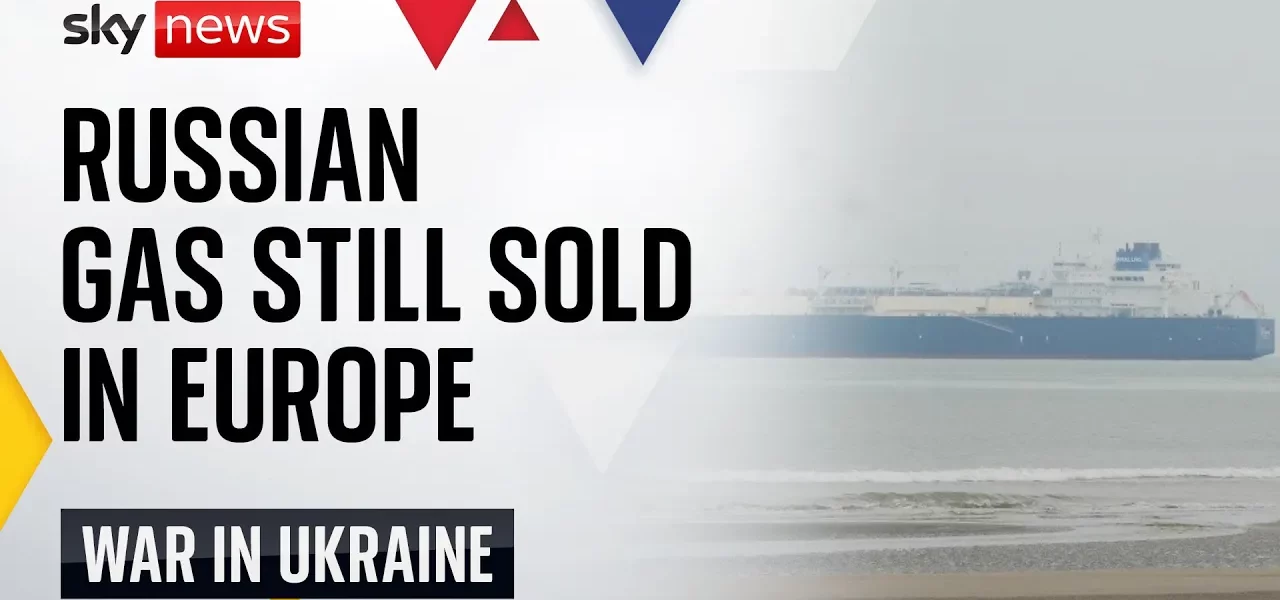The Murky Tale of Russian Gas: Europe’s Ongoing Dependency

This article delves into the complex web of energy trade between Europe and Russia, uncovering how European nations continue to import liquefied natural gas (LNG) despite sanctions aimed at undermining the Russian economy amidst the ongoing war in Ukraine.
Introduction
The geopolitical landscape of Europe has been dramatically altered due to the ongoing war in Ukraine, prompting countries to rethink their energy dependencies. Despite promises to reduce reliance on Russian fossil fuels, the reality paints a different picture. This article explores the ongoing trade of Russian liquefied natural gas (LNG) to Europe, focusing on the mechanisms that allow this trade to continue even amidst heavy sanctions. From the Arctic Ocean to European shores, we will follow the journey of LNG tankers and the financial networks that support them.
The Current State of Russian Gas Imports
As Europe strives to diminish its dependency on Russian gas, recent trends reveal that while pipeline imports have waned, LNG shipments have surged significantly.
The Shift from Pipelines to LNG
Historically, Europe relied heavily on pipeline gas from Russia. However, following the onset of the war in Ukraine, European nations have sought alternatives:
- Reduction in pipeline gas from Russia.
- Increased imports of LNG from various global sources.
- Exploration of renewable energy sources.
The Role of LNG Terminals
Belgium’s Zuga port, one of Europe’s largest LNG terminals, has become a critical node in this trade, facilitating the arrival of LNG tankers from Russia. The story of the LNG shipments highlights the paradox of European energy policies.
The Financial Mechanisms Behind LNG Imports
Despite the EU’s sanctions on Russian oil, the energy trade continues unabated due to loopholes and insufficient sanctions targeting LNG.
Insurance and Financing
One of the striking aspects of this ongoing trade is the role of British insurance companies, which continue to provide coverage for LNG shipments:
- British companies insure LNG tankers carrying Russian gas.
- The lack of sanctions on LNG shipments allows this trade to continue.
- Financial mechanisms in place enable Putin to fund his military operations through energy exports.
The Implications for European Policy
The continuation of LNG imports highlights the urgent need for a reevaluation of energy policies in Europe. As countries aim to support Ukraine, they inadvertently finance the Russian war effort through energy imports.
The Ongoing Trade: Case Studies of LNG Tankers
This section examines specific LNG tankers that have played a role in the ongoing trade between Russia and Europe.
The Vladimir Renov
The Vladimir Renov, a tanker recently tracked from Siberia to Zuga, exemplifies the ongoing trade:
- Departed from the Yamal LNG facility.
- Insured by British companies despite the UK banning Russian oil shipments.
- Contributes to the financial resources available to the Russian regime.
The Yakov Gako
Similar to the Vladimir Renov, the Yakov Gako demonstrates the interconnected nature of European and Russian energy markets:
- Part-owned by a British company.
- Facilitates the transport of Russian gas to Europe.
- Reinforces the argument that British businesses are complicit in sustaining Russian energy exports.
Conclusion
The ongoing dependency on Russian gas presents a complex challenge for Europe. While countries have taken steps to reduce imports of Russian oil and coal, the situation regarding LNG remains murky. Despite sanctions, European nations continue to support the Russian economy through LNG imports, which finance the war in Ukraine. To truly stand against the aggression of the Putin regime, European policymakers must confront the inherent contradictions in their energy strategies.
As the situation evolves, it is crucial for citizens and policymakers alike to demand transparency and accountability in energy trading practices. Only through concerted efforts can Europe hope to wean itself off Russian fossil fuels and contribute to a more stable and secure energy future.
“`




